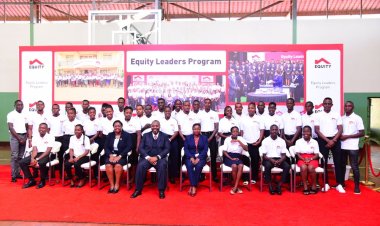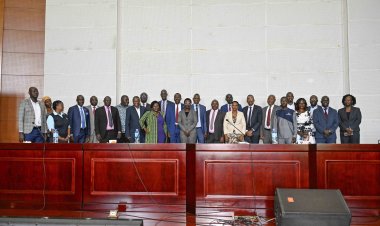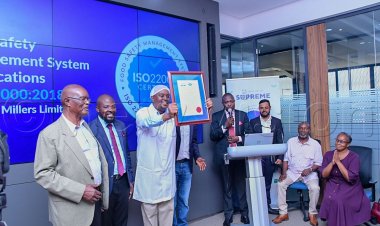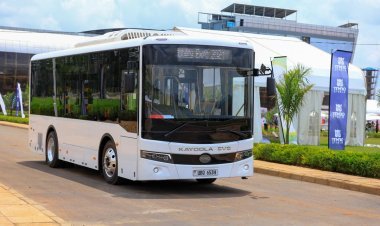Uganda Invites Tanzania to Partner in Electric Vehicle Sector as E-Mobility Market Expands
Uganda has extended an invitation to Tanzania for collaborative ventures in the electric vehicle (EV) sector, as the country strives to establish itself as a leader in East Africa's rapidly growing e-mobility market.
This move marks a significant step toward regional integration and technological advancement in the fight against climate change.
During the Uganda E-Mobility Expo held in Jinja over the weekend, Uganda’s Minister for Science, Technology, and Innovation, Ms. Monica Msanza, outlined key areas of potential collaboration between the two nations.
These include investment in EV manufacturing, market sharing, and technological partnerships aimed at strengthening the region's electric vehicle ecosystem.
Expanding Uganda’s E-Mobility Vision
Central to Uganda’s vision is the expansion of Kiira Motors Corporation (KMC), a Kampala-based company at the forefront of the country’s e-mobility efforts.
KMC’s smaller facility has already produced over 40 electric buses currently operating in major Ugandan cities like Kampala, Entebbe, and Jinja. The company’s new plant, with a production capacity of up to 250 electric vehicles per month and an annual capacity of 5,000 vehicles, represents a significant leap toward zero carbon emissions.
The Ugandan government is positioning this new KMC plant as a regional asset and is keen to attract Tanzanian investors to set up electric vehicle manufacturing operations within Uganda.
This move is seen as crucial for fostering regional integration and creating a more robust, sustainable e-mobility industry across East Africa.
Strengthening Regional Collaboration
Market sharing is another critical aspect of Uganda’s proposed collaboration with Tanzania. As Tanzania seeks to enhance its public transportation system, Uganda’s ongoing negotiations to supply electric buses to Tanzanian cities present a significant opportunity to promote sustainable urban mobility.
Ms. Msanza highlighted the mutual benefits of shared expertise between the two nations, which could reduce reliance on imports and bolster regional supply chains.
“Tanzanian universities and innovators have the potential to play a significant role in manufacturing components for electric buses,” Ms. Msanza emphasized.
“This local collaboration could strengthen regional supply chains and enhance self-reliance in the e-mobility sector.”
Ms. Msanza underscored the long-term economic and environmental benefits of transitioning to e-mobility, citing the potential for significant reductions in greenhouse gas emissions.
“The global mobility industry, valued at $15 trillion in 2017, is expected to exceed $26.6 trillion by 2030,” she noted.
“As the vehicle market in sub-Saharan Africa is projected to grow from 2.7 million vehicles in 2021 to 58 million by 2040, transitioning to e-mobility is crucial.”
Challenges and Optimism in E-Mobility Transition
While acknowledging the challenges of moving from traditional combustion engines to electric alternatives, Ms. Msanza expressed optimism that understanding and acceptance of e-mobility will grow over time as the environmental and economic advantages become more apparent.
Dr. Shamim Matovu, a business anthropologist and consultant from Uganda, also spoke at the expo, emphasizing the importance of knowledge management and adherence to quality standards to create competitive regional markets.
She stressed the need to learn from other African nations already exporting to Europe and investing in local research to ensure success.
“This e-mobility conversation should be inclusive,” Dr. Matovu said. “Knowledge about tackling climate change and the benefits of e-mobility should be accessible to everyone, not just the educated few.”
Tanzania’s Positive Reception
The national secretary of the Tanzania Bus Owners Association (Taboa), Mr. Joseph Priscus, recognized the significant benefits Tanzania could gain from the e-mobility initiative.
He noted that the transition to electric vehicles could help reduce fuel costs—a critical consideration given fluctuating fuel prices—and praised Uganda’s efforts in advancing the sector.
Mr. Priscus expressed confidence that Tanzania, along with other countries in the region, would benefit from the expanded value chain, further strengthening East Africa’s e-mobility sector.

































